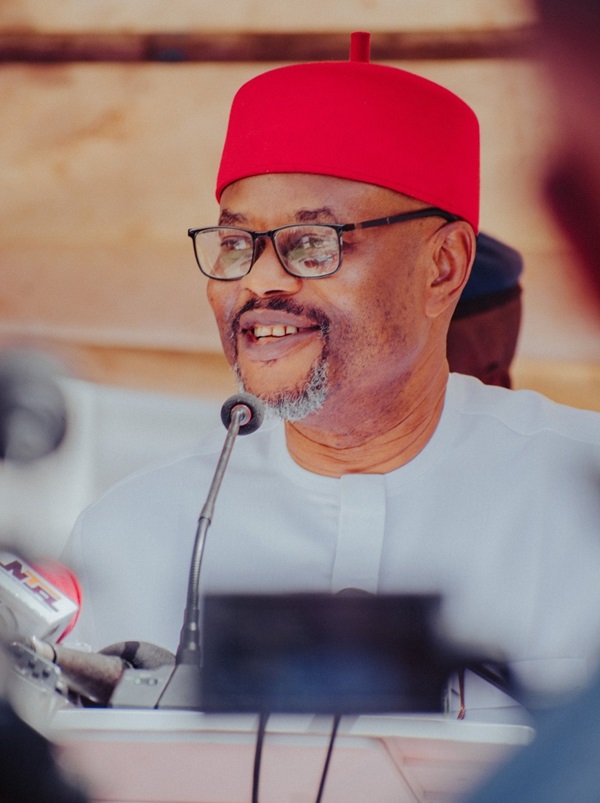
The Raw Material Research and Development Council (RMRDC), under the Minister of Innovation Science and Technology (IST), Chief Uche Nnaji said it has introduced a 10-year roadmap aimed at achieving a 60 per cent increase in value addition for Nigeria’s raw materials.
The ambitious goal aims to transform the nation’s raw material sector by prioritizing local processing and minimising crude exports.
Speaking at the 2024 edition of the RMRDC program presentation and dialogue session in Abuja, Nnaji emphasised the importance of adding value to Nigeria’s raw materials. “This roadmap represents a bold vision for Nigeria’s future—where our raw materials are no longer exported in crude form but processed and enriched to maximise their value before leaving our shores,” Nnaji explained.
The roadmap, developed with the support of the African Development Bank (AfDB), aims to boost value addition in the raw material sector from the current 25 per cent to 60 per cent within the next decade. Nnaji stressed that by improving raw material processing, Nigeria could create jobs, stimulate domestic manufacturing, and strengthen the naira. He added that increased use of local raw materials would reduce dependency on imports and position Nigeria as a global player in raw materials.
According to Nnaji, achieving the 60 per cent value addition target will create a more competitive Nigeria and lay the foundation for economic empowerment and poverty reduction. He also quoted President Bola Tinubu’s speech at the 79th United Nations General Assembly, where he highlighted Africa’s potential to leverage its natural resources to reduce dependency on foreign markets.
Nnaji urged the RMRDC to collaborate with partners to transform Nigeria into a nation where raw materials are engines of growth and sustainability. “A Nigeria where local industries thrive, creating jobs and opportunities for millions,” he said.
During the session, Manager of the Natural Resources Management and Investment Centre at AfDB, Fred Kabanda, emphasised the importance of sustainable exploitation and utilization of Nigeria’s natural resources for economic transformation. Kabanda noted that Africa, particularly Nigeria, is rich in natural wealth, with Nigeria being the wealthiest African country in non-renewable resources, valued at $582.4 billion.
He added that Africa accounts for over 30 per cent of global annual production of key minerals such as platinum, cobalt, manganese, diamonds, and gold. However, African economies remain among the least developed globally due to overreliance on commodity exports with limited value addition. Kabanda stressed that value addition to raw materials could help African countries, including Nigeria, retain jobs, grow tax revenues, and reduce carbon footprints.
Kabanda also highlighted Nigeria’s opportunity to enhance natural resource management and beneficiation, particularly with initiatives such as the Nigeria LNG (NLNG) carbon sequestration program. He urged Nigeria to take the lead in positioning itself at the forefront of climate innovations that drive inclusive growth.
Kabanda outlined several challenges that need to be addressed to maximize the opportunities in Nigeria’s raw material sector. These challenges include a lack of information and data on the stock of resources, inadequate infrastructure for large-scale processing, and insufficient finance and capacity for small and medium-sized enterprises (SMEs) to participate in supply chains. Kabanda stressed that the RMRDC is poised to lead Nigeria in overcoming these challenges and harnessing emerging opportunities in the natural resources sector.
He emphasised that the AfDB, in collaboration with other partners, has been working to build the capacity of African governments to better manage their resources for sustained growth. This includes providing advisory services and technical assistance to governments and agencies like RMRDC.
Director-general of RMRDC, Prof. Nnanyelugo Ike-Muonso presented the council’s strategic plan to achieve the 10-year roadmap. He stressed the importance of data, technology, research, and development in driving value addition. The council aims to establish centers of expertise to focus on secondary raw materials derived from waste, which will reduce the country’s overall waste output and contribute to a circular economy.
Ike-Muonso added that the extraction of raw materials without local processing perpetuates Africa’s underdevelopment. “The extraction of raw materials without local processing only deepens Africa’s underdevelopment,” he said.
In his keynote speech, country director of Development Alternatives Inc. (DAI), Dr. Joe Abah, highlighted Nigeria’s potential to drive industrialisation through its abundant natural resources. With 44 identified solid minerals, including iron ore, lead, zinc, and limestone, Abah emphasised that the strategic development and conversion of these raw materials into finished products is essential for Nigeria’s future prosperity.
Abah added that the government’s commitment to carbon reduction targets and green technologies must guide the sustainable utilisation of Nigeria’s raw materials. He argued that increasing value addition in raw materials will strengthen Nigeria’s manufacturing sector, reduce dependency on imports, and ultimately boost the economy.
Permanent secretary of the Ministry of IST, Mrs. Esuabana Asanye reiterated the importance of efficiently harnessing Nigeria’s raw materials to reduce import dependency and foster industrial growth. She emphasised that localising raw material processing is crucial for building resilient economies.
Asanye cited the World Bank’s report that Nigeria’s manufacturing sector accounts for less than 10 per cent of the country’s GDP. She noted that increasing local processing of raw materials could push this figure higher, creating jobs and boosting foreign exchange earnings.
The RMRDC’s 10-year roadmap is a strategic effort to position Nigeria as a leader in raw material value addition, aiming to enhance productivity, create jobs, and ensure long-term economic stability. The success of this initiative hinges on partnerships, investments and a shared commitment to industrial growth and sustainability.

